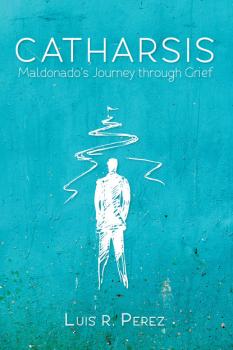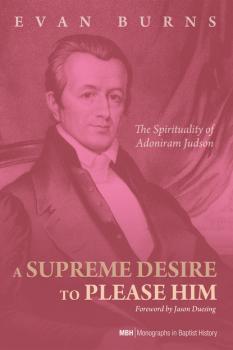MREADZ.COM - много разных книг на любой вкус
Скачивание или чтение онлайн электронных книг.Catharsis
Grief can do terrible things to us. It can hold us still in time and skew our perspective. That is the case with William Maldonado, who grieves the loss of his father as a child to war; the loss of his mother as a young adult to an illness; the loss of an opportunity to pursue a doctoral degree, and the loss of his professional reputation to an accusation of committing insurance fraud. Subterranean sorrow leads Maldonado to make wrong-minded decisions that eventually lead him to prison and then to a half-way-house. One day, as he tries to understand his grief, he blames the world, and, in particular, a former business partner. Full of rage, he returns to the city where he experienced his deepest wounds. Upon his return, he discovers that his former business partner, now a Pentecostal minister, emerged unscathed from the insurance fraud scandal that sent him fleeing for a decade. That discovery thrusts Maldonado on a path of revenge and into the roiling world of church politics, where he joins a secession group that wants to fire his former partner. It takes the whims of fate and new friendships for Maldonado to experience clarity of purpose.
Postils for Preaching
Postils for Preaching repristinates an old term for commentaries on the appointed texts by assisting preachers in their time-honored calling of preaching the Word. «Post illa,» some think, probably refers to the reflecting «after this» (meaning upon the texts) that preachers must do in the context of the lives of their congregations and larger communities. These essays do not aim to be sermons but sermon-starters, goads and incitements to consider the assigned texts with serious imagination and good humor, all in the context of the church year and its inter-textual connections. The intention of this publication is to dip into a lifetime of that exegetical and homiletical «bag of tricks» as Jesus himself obliquely recommended when he noted how «every scribe who has been trained for the kingdom of heaven is like the master of a household who brings out of his treasure what is new and what is old» (Matt 13:52). Please consider these postils a «thesaurus» («treasury») from which to borrow insights, references, and allusions as needed and found of value.
Orientation to the History of Roman Judaea
No field of study is livelier than the history of Roman-era Judaea (ca. 200 BC to AD 400). Bold reinterpretations of texts and new archaeological discoveries prompt us constantly to rethink assumptions. What kind of religion was Judaism? How did Jews–and Christians–relate to Roman imperial power? Should we speak of Judaism or Judaisms? How should the finds at Qumran affect our understanding? Did Paul and other early Christians remain within Judaism? Should we translate Ioudaioi as «Jews» or «Judaeans»? These debates can leave students perplexed, this book argues, because the participants share only a topic. They are actually investigating different questions using disparate criteria. In the hope of facilitating communication and preparing advanced students, this book explores two basic but neglected problems: What does it mean to do history (if history is what we wish to do)? And how did the ancients understand and describe their world? It is not a history, then, but an orientation to the history of Roman Judaea. Rather than trying to specify which questions are good ones or what one should think about them, the book offers new perspectives to help unleash the historical imagination while reckoning squarely with the nature of our evidence.
Marking the Church
More than one person has joked over the years that Evangelical believers do not have an ecclesiology. In one sense, that is absurd: Evangelical churches (especially if you include Pentecostals in that group) are some of the fastest-growing, most vibrant churches in the world. Evangelicals are proclaiming the gospel, praising the Lord, reading the Bible, and loving the poor. But there is a case to be made that the Evangelical devotion to the mission of the church has left Evangelicals with little time to reflect on the church itself. In this collection of essays, first given at annual meetings of the Evangelical Theological Society, the authors take time to reflect on the nature of the church in an Evangelical context, asking after the way in which it is one, holy, catholic, and apostolic.
Gift and Promise
What would happen if the liturgy for the Lord's Supper started with the images in the New Testament rather than the divisions of our past? It would be like going through an open door into a new world. There we would find a new Passover celebration, a new covenant, and remembrance and proclamation of Jesus' death and resurrection–all in the context of the kingdom of God. It would be an evangelical Lord's Supper. This is a high-risk operation, given the reliance by many on transactional sacrifice and the tendency to reduce the Supper to a sacrament of penance for individuals. Ideas rejected by Luther and Calvin now reappear even among Protestants. The goal cannot be reached by subtracting a few things and adding references to eschatology and joy. The good news is that many churches have already taken steps to reform their liturgies. To support that process, here is a clear and consistent evangelical perspective, based on the theology and biblical considerations that have formed our faith and practice.
An Abecedarian of Sacred Trees
Every person has seen a tree and maybe planted or climbed one! In all world religions, various trees are considered sacred. Trees have the ability to help us reach wholeness if we learn their wisdom and integrate it into our lives. This abecedarian–a book whose contents are in alphabetical order–explores the spiritual growth that is possible by reflecting on the wisdom of woody plants, which help humans experience the divine. In these pages you can explore trees from Acacia to Zaqqum. For each of the forty entries, the author presents a text identifying the tree, a reflective study, a question for journaling or personal meditation, and a concluding prayer. Some trees you may have heard about, and some may be new to you. The spiritual life is enhanced by the trees that surround and share the earth with us while also disclosing the divine to us.
A Supreme Desire to Please Him
Adoniram Judson was not only a historic figurehead in the first wave of foreign missionaries from the United States and a hero in his own day, but his story still wins the admiration of Christians even today. Though numerous biographies have been written to retell his life story in every ensuing generation, until now no single volume has sought to comprehensively synthesize and analyze the features of his theology and spiritual life. His vision of spirituality and religion certainly contained degrees of classic evangelical piety, yet his spirituality was fundamentally rooted in and ruled by a mixture of asceticism and New Divinity theology. Judson's renowned fortitude emerged out of a peculiar missionary spirituality that was bibliocentric, ascetic, heavenly minded, and Christocentric. The center of Adoniram Judson's spirituality was a heavenly minded, self-denying submission to the sovereign will of God, motivated by an affectionate desire to please Christ through obedience to his final command revealed in the Scriptures. Unveiling the heart of his missionary spirituality, Judson himself asked, «What, then, is the prominent, all-constraining impulse that should urge us to make sacrifices in this cause?» And he answered thus: «A supreme desire to please him is the grand motive that should animate Christians in their missionary efforts.»
Rethinking the Prophetic Critique of Worship in Amos 5 for Contemporary Nigeria and the USA
Father Udoekpo's work offers a thorough review of the theology of worship in the work of Amos of Tekoa, one of Israel's foundational prophets. It critically examines Amos 5 in its socio-historical and literary context and theologically reevaluates the application of Amos's message of ethical worship, judgment, and hope to two contemporary cultures: Nigeria and the United States of America. While intentionally down to earth and engaging in society and religion, this work discusses in a thoughtful and detailed exegetical manner the various sub-units of lamentation (vv. 1-3), the motifs of the remnant, the exhortation to the seek the Lord, justice and righteousness (vv. 4-6; 14-15, 24), judgment, and the notion of the Day of the Lord (vv. 18-20) as they relate to the theology of worship (vv. 21-27) in Amos 5. The author pastorally draws the reader's attention to Amos' view that worship must not be restricted to hypocritical offerings, empty rituals, and songs at sanctuaries, but needs to incorporate ethics of justice, peace, and righteousness practiced in marketplaces and plazas.
Pursuit of Perfection
Pursuit of Perfection explores the significance of the perfection motif in the Epistle to the Hebrews. It addresses the controversial interpretation of teleios («perfection») in Hebrews where this notion is so central to the argument of the book. The investigation examines the meaning of perfection in an attempt to discover its significance on Hebrews theology. The need for the study is the lack of adequate treatment of the subject in the last three decades. The discussion focuses on the precise meaning to be attached to the notion of perfection and its significance for Hebrews interpretation. Through an exploration of major interpretative approaches to the notion of perfection, and its usages in classical world, Second Temple Judaism, and New Testament literature, especially Hebrews. The author argues that the notion of perfection has an eschatological significance and is linked to better provisions of the new covenant, which guarantee believers' salvation and eternal inheritance. The author sums up his argument that the call to pursue the goal of perfection is a call for commitment to the gospel message as Christians of all ages follow the example of the Christ, the one who endured suffering of the cross and its despised shame in order to bring many followers to their future eternal glory.
Trinitarian Ontology and Israel in Robert W. Jenson’s Theology
Can Christian theology overcome its long-standing supersessionism without diluting its Trinitarian faith? Can Christian faith remain genuinely Christian when it fails to recognize the covenantal significance of the Jews? In his later career, leading Trinitarian theologian Robert Jenson's theology moves in a post-supersessionistic direction. That said, the conceptual nexus between his Trinitarian theology and his post-supersessionism is not always patent on the surface of his texts. In this book, Lee traces the post-supersessionistic development of Jenson's Trinitarian theology and uncovers the reasons why Jenson's Trinitarian theology sets out to embrace the existence of the Jews. This book seeks to show that Jenson's revisionary–historicized, «carnalized,» hermeneutical, and eschatological–Trinitarian ontology allows for genuine confession of the eternal triune God as the God of Israel, and that it thereby lays a firm basis for a properly Christian post-supersessionism.









